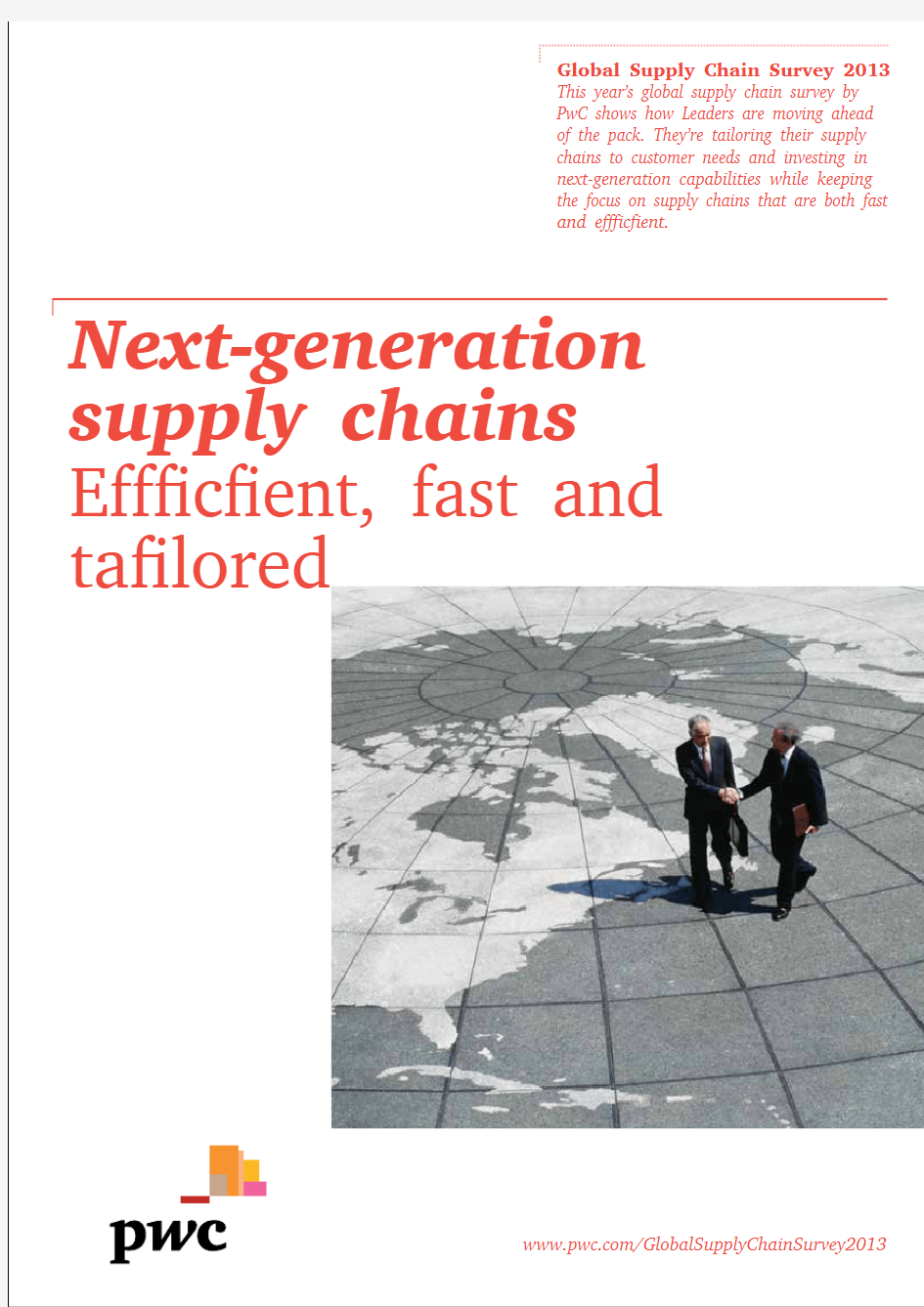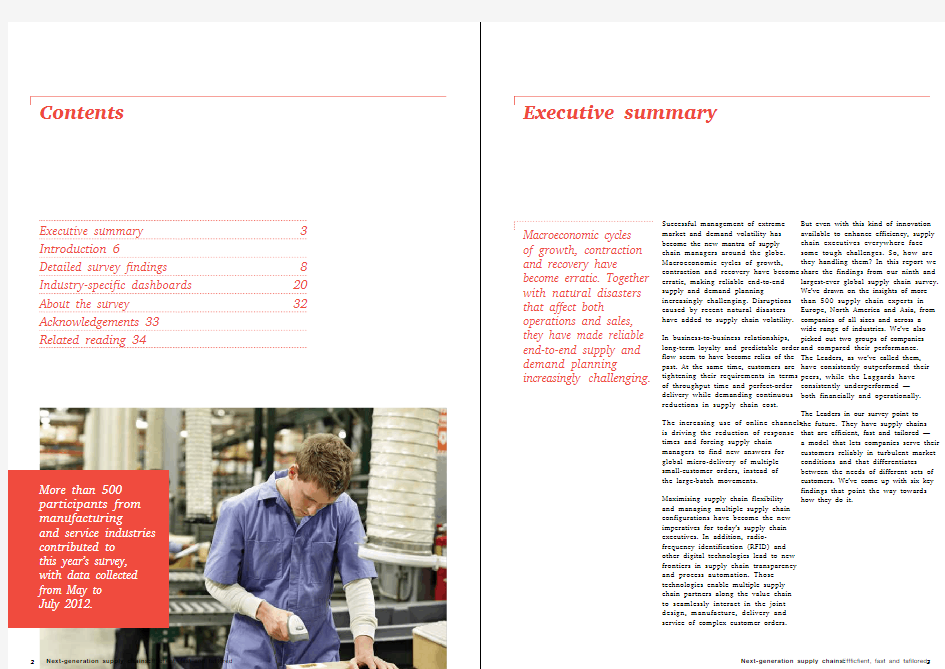

More than 500 participants from manufacturing
and service industries contributed to
this year’s survey, with data collected from May to
July 2012.
Introduction
In our ninth — and largest-ever — global supply
chain survey, we heard from over 500 executives
around the world which key trends they see
reshaping the supply chain.
The need to cope with a whole range of supply chain challenges is putting greater pressure than ever on supply chain executives. In our ninth — and largest-ever — global supply chain survey, we heard from over 500 executives around the world which key trends they see reshaping the supply chain. Coming from companies large and small, across a wide range of industries, our respondents shared details of their operating models and the practices their companies are using, outlined the ways they’re organising their supply chains and described the levers they’re pulling to maximise the value of those supply chains.
We’ve supplemented this research with a comparison of two distinct cohorts
of companies: those in the top quintile and those in the bottom quintile (per industry sector), measured in terms of financial and operational performance. The differences between those Leaders and the Laggards are illuminating. The most-successful companies have configured their supply chains for specific customer segments, adopted differentiating practices such as collaborative planning with customers and suppliers and reduced complexity. The Leaders in our survey point to
the future. They have next-generation supply chains that are fast, flexible and responsive — a model that enables companies to serve their customers accurately and efficiently
in turbulent market conditions and differentiates between the needs of different sets of customers.
We’ve discussed our main findings in the following pages. We’ve also included six dashboards with details of how well the supply chains of companies in different industries perform, how those supply chains are typically organised and the value drivers that matter most.
Interesting to note is that on average, only 36% of manufacturing and assembly
From vulnerable to valuable: How integrity can transform a supply chain Driving CO 2 out of the supply chain and off retailers’ shelves
Global supply chain trends 2011
supplement: Achieving operational flexibility in a volatile world
Not your father’s supply chain: Following best practices to manage inventory Pharma 2020:
Supplying the future
Powering the service-oriented supply chain
APEC’s evolving supply chain: 2012 APEC CEO Summit PwC issues spotlight
Resilience: Sustaining the supply chain
Rethinking the
business operating model: Corporate simplification in the automotive sector Sparing no effort: Lessons on managing service inventory for greater profitability and growth
Supply chain globalization planning and analytics
Supply chain management: Achieving agility through the sales
inventory operations planning process
https://www.doczj.com/doc/072468032.html,/GlobalSupplyChainSurvey2013
PwC firms help organisations and individuals create the value they’re looking for. We’re a network of firms in 158 countries with close to 169,000 people who are committed to delivering quality in assurance, tax and advisory services. Tell us what matters to you and find out more by visiting us at https://www.doczj.com/doc/072468032.html,.
This publication has been prepared for general guidance on matters of interest only, and does not constitute professional advice. You should not act on the information contained in this publication without obtaining specific professional advice. No representation or warranty (express or implied) is given as to the accuracy or completeness of the information contained in this publication, and to the extent permitted by law, PricewaterhouseCoopers LLP its members, employees and agents do not accept or assume any liability, responsibility or duty of care for
any consequences of you or anyone else acting, or refraining to act, in reliance on the information contained in this publication or for any decision based on it.
? 2012 PricewaterhouseCoopers LLP. All rights reserved. In this document, “PwC” refers to PricewaterhouseCoopers LLP (a limited liability partnership in the United Kingdom), which is a